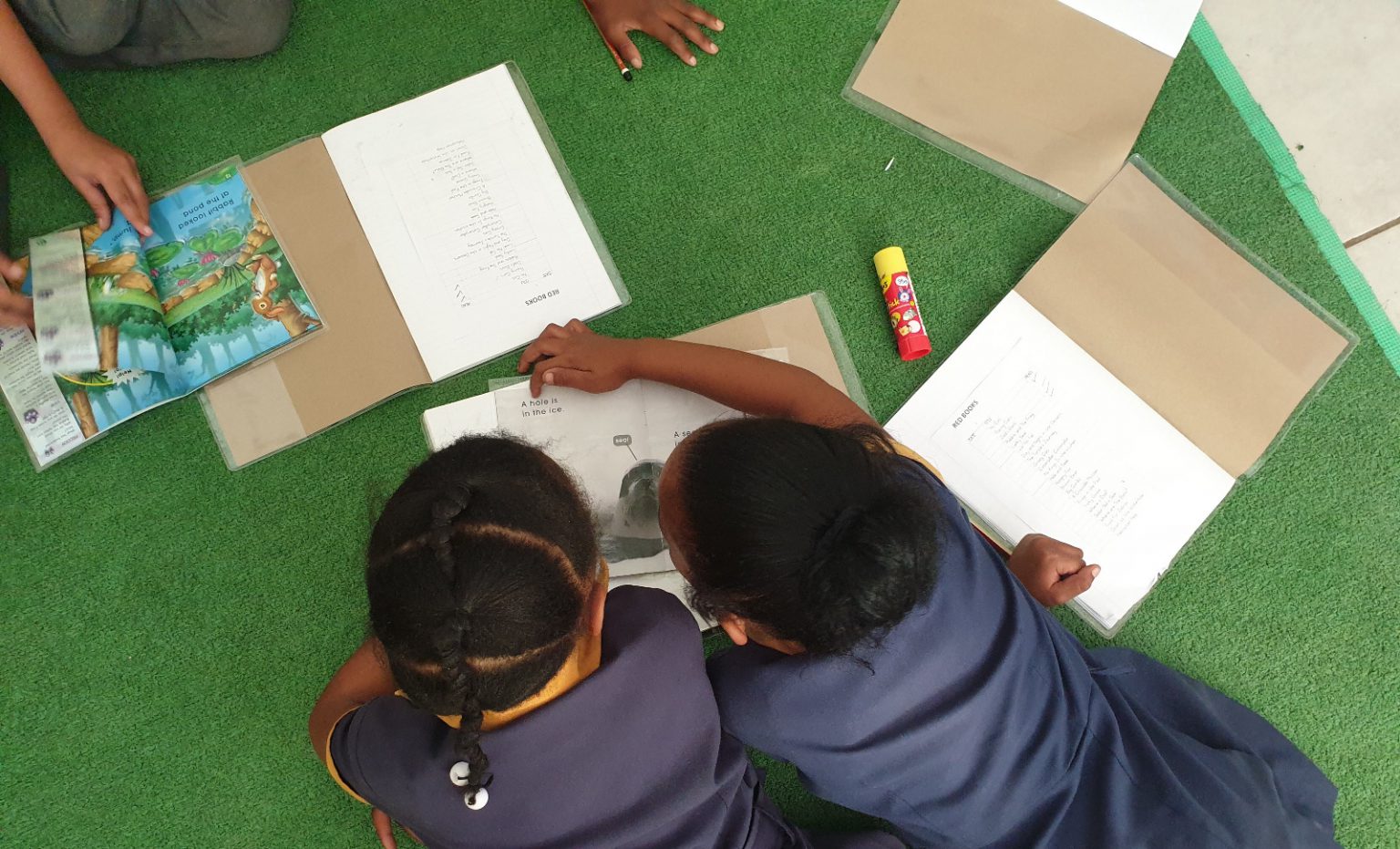By Rod Amner
Two in five Grade 4 children in Makhanda (40%) can read for meaning, more than twice the national rate of just 19% measured by the Progress in International Reading Literacy Study (PIRLS) in 2021.
These remarkable results emerged from a comprehensive study by local NGO Gadra Education and the Rhodes University Department of Primary and Early Childhood Education.
GADRA Education research and communications manager Kelly Long said the study measured the comprehension skills and reading fluency of over 1000 children and all 19 public primary schools in the town, of which just four are fee-paying.
“In the face of a national crisis in primary education, Makhanda provides a shining example of what can be achieved when a community comes together with a shared vision of educational excellence,” Long said.
Despite very high unemployment and poverty levels, Makhanda offers a compact representation of the various public schooling options found within South Africa, all conveniently situated in a relatively small geographic region.
An SABC news team headed by senior journalist Lerato Fekisi visited some of the top-performing schools on Thursday, 16 November.
Two measures were used in the survey: a comprehension assessment and an Oral Reading Fluency (ORF). Comprehension measures assess a learner’s ability to extract meaning from text. ORF measures assess a learner’s level of reading fluency, which is widely accepted as a critical element of early reading, creating a bridge to comprehension. Mirroring the PIRLS assessment, children were tested in the Language of Learning and Teaching (LOLT) of the Foundation Phase of their schooling.
Dr Lise Westaway, Deputy Dean of Education at Rhodes University and research team member, said the involvement of final year Bachelor of Education students in the research project had provided an invaluable service-learning opportunity as they prepare to begin their teaching careers.
“The research team, including members from GADRA and Rhodes, are working together to develop a deep understanding of the rich data,” Westaway said. “The data will be analysed to guide local, contextualised attempts to address literacy challenges and enhance positive outcomes,” Westaway said.
Thulani Wana is the principal of Good Shepherd Primary School, the top performing no-fee school in Makhanda, with an impressive two-thirds of their Grade 4 learners able to read for meaning.
“It has been very useful for us to be involved in this research project as we have been able to see where our learners stand in relation to the rest of the town for the first time. The results have boosted our dedicated staff, and we are all incredibly proud of our learners’ achievements,” Wana said.
“Our school has been fortunate to benefit from a wonderful range of support provided by the Good Shepherd Trust, Rhodes University and several local NGOs. Thanks to these valuable partnerships, our learners benefit from many academic and extramural opportunities that contribute to our shared success,” he added.
Lindiso Funani is the Principal of Archie Mbolekwa Primary, which was revealed as the top-performing isiXhosa medium of instruction school in Makhanda by the survey.
Funani credited ongoing support from national literacy NGO Funde Wande as an important factor in the school’s success. Funde Wande provided training for Foundation Phase teachers, employed extra teaching assistants and bought much-needed books in isiXhosa and English.
The impressive overall results of the study underscore the widespread impact of collective efforts, which are reshaping the city into an educational powerhouse. Makhanda is rapidly gaining recognition as the foremost educational centre in the Eastern Cape, as evidenced by numerous significant education indicators.
- Improving literacy rates have seen the city’s drop-out rate plummet by 20 percentage points in the past three years.
- The Matric pass rate has galloped from around 60% ten years ago to 85% today.
- Record numbers of learners are securing Bachelor passes, and the quality of these Bachelors is rising, resulting in a tenfold increase in the number of disadvantaged local youth gaining access to Rhodes University as full-time students and a sharp upturn in the number of locals successfully graduating from Rhodes University.
GADRA Education’s Long said the meteoric rise had been brought about by a city-wide collaboration involving numerous public, civil society, private institutions and donors, which has seen a dedicated team of locally-based education activists come together to achieve the shared goal.
“The success story of Makhanda serves as a beacon of hope for South Africa,” Long said.
“Ultimately, it’s a testament to the potential within every community, no matter how challenging the circumstances. With commitment, resources, and a shared determination to provide quality education for all, we can overcome the most daunting educational obstacles and pave the way for a brighter future for the next generation.”


